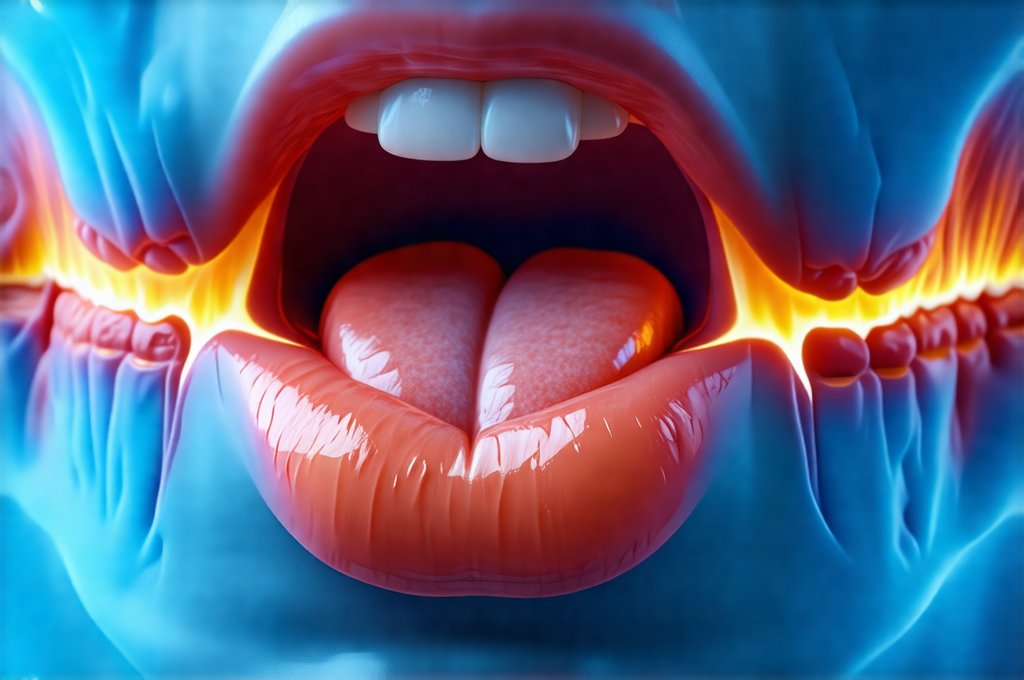Gastroesophageal reflux disease (GERD) is a surprisingly common condition affecting millions worldwide. While many associate it with classic symptoms like heartburn and acid indigestion, its reach often extends beyond these well-known indicators. Increasingly, individuals are reporting atypical symptoms – manifestations that don’t neatly fit the “typical” GERD profile. One such symptom gaining attention is burning mouth syndrome or a general soreness of the tongue, leading people to wonder if there’s a connection between their digestive health and oral discomfort. Understanding this potential link requires delving into the complexities of both GERD and the various causes of tongue-related sensations.
The relationship isn’t always straightforward. Tongue burning or soreness can stem from numerous sources – nutritional deficiencies, stress, hormonal changes, even dental issues. Therefore, attributing it solely to GERD would be an oversimplification. However, the growing recognition of atypical GERD symptoms and the physiological mechanisms at play suggest a plausible connection worth exploring. This article aims to shed light on this complex relationship, outlining how GERD might contribute to tongue discomfort, what other factors could be involved, and when it’s crucial to seek professional evaluation. It’s important to remember that self-diagnosis can be misleading; the goal here is to provide information for a better understanding of potential connections, not to substitute medical advice.
The Link Between GERD and Tongue Discomfort
The connection between GERD and tongue burning or soreness isn’t immediately obvious because it doesn’t follow the typical heartburn pathway. However, the key lies in recognizing that refluxed stomach acid isn’t limited to just irritating the esophagus. When acid escapes the stomach, it can travel further up – reaching the back of the throat (laryngopharyngeal reflux or LPR) and even potentially impacting the oral cavity. This is often referred to as silent reflux because it doesn’t always present with classic heartburn symptoms. LPR is more difficult to diagnose than typical GERD due to its subtle presentation, but it can be a significant source of discomfort in the mouth and throat.
The acidic environment created by reflux can directly irritate the sensitive tissues of the tongue. This irritation isn’t necessarily a burning sensation immediately; it could manifest as soreness, a metallic taste, or even altered taste perception. Chronic exposure to acid can also lead to inflammation, further contributing to ongoing discomfort. Moreover, repeated episodes of reflux can disrupt the natural pH balance in the mouth, potentially exacerbating sensitivity and creating an environment conducive to oral issues. It’s important to remember that even seemingly mild reflux over a long period can have cumulative effects on oral health.
Beyond direct acid exposure, GERD can also indirectly contribute to tongue discomfort through other mechanisms. For example, individuals with GERD may experience increased mucus production as the body attempts to neutralize stomach acid. This excess mucus can lead to postnasal drip, further irritating the throat and potentially affecting taste sensation, which might be perceived as a burning or sore tongue. Furthermore, some medications used to manage GERD (like certain antacids) could have side effects that contribute to oral discomfort in rare cases. Understanding common causes of related conditions can provide valuable context.
Understanding Burning Mouth Syndrome
Burning mouth syndrome (BMS) is a chronic condition characterized by an intense burning sensation in the mouth, often affecting the tongue, palate, or gums. While the exact cause of BMS remains largely unknown – and it’s frequently diagnosed after ruling out other causes – there’s growing evidence suggesting a potential link to GERD in some individuals. It’s crucial to differentiate between BMS and simple tongue soreness caused by acid reflux; BMS is typically more persistent and widespread, and doesn’t always respond to typical GERD treatments.
- Distinguishing features of BMS:
- Intense burning sensation without visible inflammation
- Often affects the front two-thirds of the tongue
- May be accompanied by altered taste or dry mouth
- Can significantly impact quality of life
If someone suspects they have BMS, a thorough medical evaluation is essential. This evaluation should include ruling out other potential causes, such as nutritional deficiencies (iron deficiency, vitamin B12), hormonal imbalances, nerve damage, and underlying systemic conditions. In some cases, GERD may be identified as a contributing factor to BMS symptoms, particularly if the individual also experiences other GERD-related signs like acid reflux or LPR. It’s worth exploring GERD with esophagitis to understand the spectrum of this condition.
Other Potential Causes of Tongue Burning/Soreness
It’s vital not to automatically assume GERD is responsible for tongue discomfort. A wide range of factors can cause these sensations, and accurate diagnosis requires a comprehensive approach. Ignoring other potential causes could lead to delayed treatment and prolonged suffering. Some common culprits include:
– Nutritional Deficiencies: Lack of iron, vitamin B12, folate, or zinc can all contribute to tongue soreness.
– Dental Issues: Poorly fitting dentures, cavities, gum disease, or even a cracked tooth can irritate the tongue.
– Oral Allergies/Sensitivities: Reactions to toothpaste ingredients (sodium lauryl sulfate), mouthwash, or certain foods can trigger inflammation and discomfort.
– Stress & Anxiety: Psychological stress can manifest physically as oral symptoms, including burning mouth sensation.
– Medications: Some medications – including those for blood pressure or anxiety – can cause dry mouth, which exacerbates tongue soreness.
A healthcare professional should perform a thorough examination to identify the underlying cause. This may involve taking a detailed medical history, conducting a physical exam of the mouth and throat, and ordering relevant tests (blood work to check for nutritional deficiencies, dental evaluation, allergy testing). It’s also important to consider whether the sensation is localized or widespread, constant or intermittent, and what factors seem to aggravate or relieve it. Many find relief with tailored dinner meals designed for sensitive digestive systems.
When to Seek Medical Attention
Determining when to consult a doctor about tongue burning or soreness can be tricky. Mild, occasional discomfort that resolves quickly might not warrant immediate attention. However, certain signs should prompt a visit to a healthcare professional:
1. Persistent symptoms: If the discomfort lasts for more than two weeks and doesn’t improve with self-care measures.
2. Severe pain: If the burning or soreness is intense and interferes with eating, speaking, or sleeping.
3. Associated symptoms: If you experience other concerning symptoms alongside tongue discomfort, such as difficulty swallowing, weight loss, changes in taste, or visible sores/lesions in the mouth.
4. Suspected GERD: If you have a history of GERD or suspect that acid reflux might be contributing to your symptoms.
A doctor can accurately diagnose the cause of your tongue discomfort and recommend appropriate treatment. For suspected GERD-related issues, this may involve lifestyle modifications (dietary changes, elevating the head of the bed), medication adjustments, or further investigation with tests like endoscopy to assess esophageal health. For other causes, treatments will vary depending on the underlying condition. GERD without esophagitis also deserves consideration for a comprehensive understanding of the disease. Recognizing the connection between GERD and hiccups can help identify related symptoms. Furthermore, exploring GERD and bad breath may reveal additional clues about your condition. It is important to remember that this information is not a substitute for professional medical advice. Always consult with a qualified healthcare provider for diagnosis and treatment of any medical condition.


















